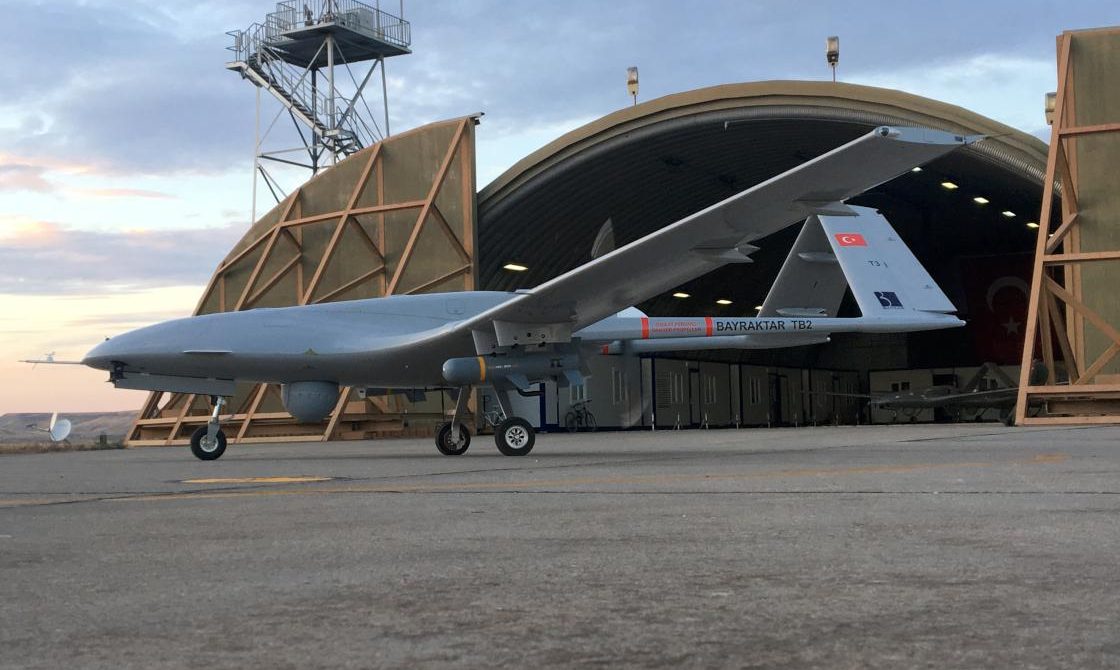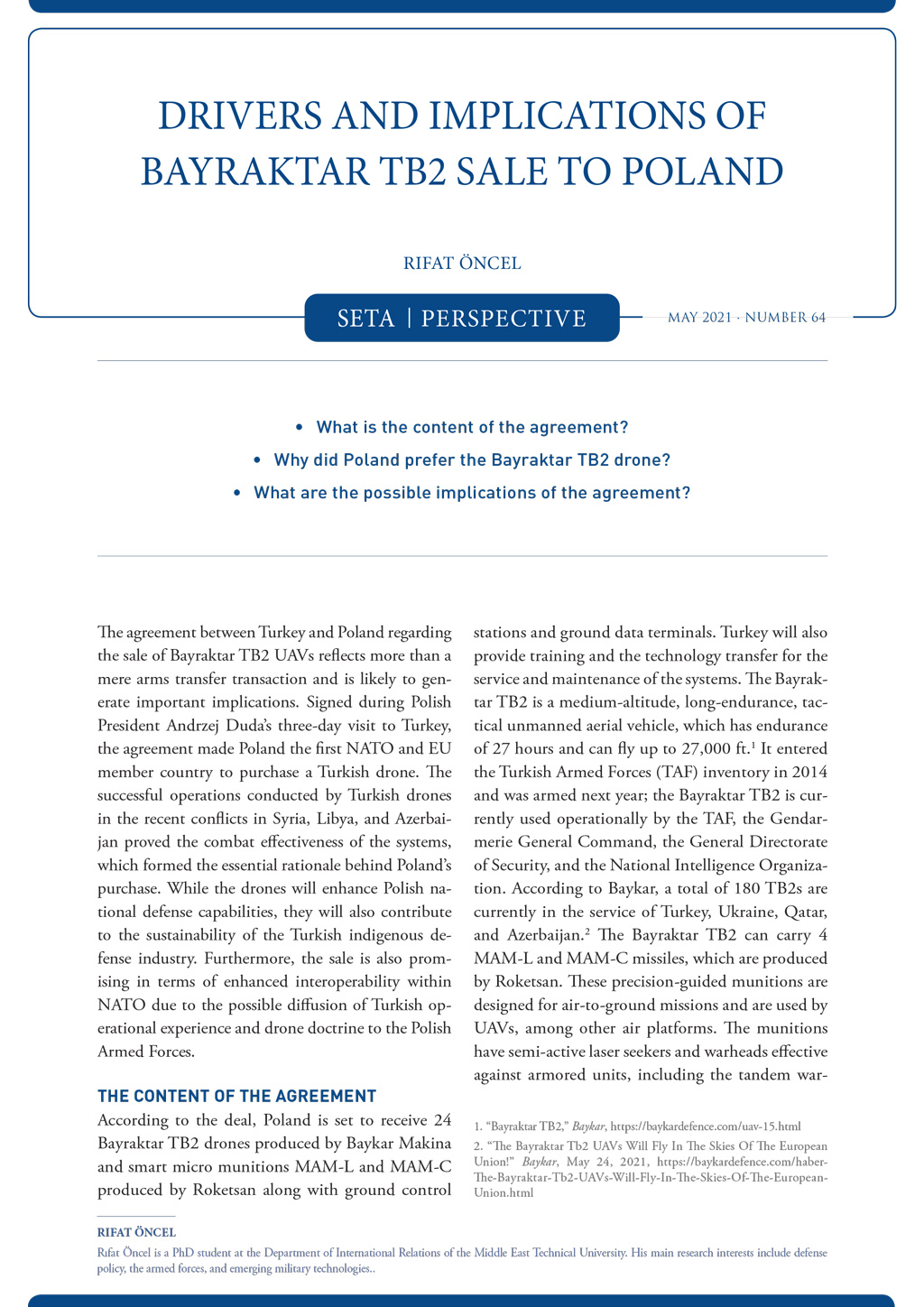The agreement between Turkey and Poland regarding the sale of Bayraktar TB2 UAVs reflects more than a mere arms transfer transaction and is likely to generate important implications. Signed during Polish President Andrzej Duda’s three-day visit to Turkey, the agreement made Poland the first NATO and EU member country to purchase a Turkish drone. The successful operations conducted by Turkish drones in the recent conflicts in Syria, Libya, and Azerbaijan proved the combat effectiveness of the systems, which formed the essential rationale behind Poland’s purchase. While the drones will enhance Polish national defense capabilities, they will also contribute to the sustainability of the Turkish indigenous defense industry. Furthermore, the sale is also promising in terms of enhanced interoperability within NATO due to the possible diffusion of Turkish operational experience and drone doctrine to the Polish Armed Forces.
THE CONTENT OF THE AGREEMENT
According to the deal, Poland is set to receive 24 Bayraktar TB2 drones produced by Baykar Makina and smart micro munitions MAM-L and MAM-C produced by Roketsan along with ground control stations and ground data terminals. Turkey will also provide training and the technology transfer for the service and maintenance of the systems. The Bayraktar TB2 is a medium-altitude, long-endurance, tactical unmanned aerial vehicle, which has endurance of 27 hours and can fly up to 27,000 ft.1 It entered the Turkish Armed Forces (TAF) inventory in 2014 and was armed next year; the Bayraktar TB2 is currently used operationally by the TAF, the Gendarmerie General Command, the General Directorate of Security, and the National Intelligence Organization. According to Baykar, a total of 180 TB2s are currently in the service of Turkey, Ukraine, Qatar, and Azerbaijan.2 The Bayraktar TB2 can carry 4 MAM-L and MAM-C missiles, which are produced by Roketsan. These precision-guided munitions are designed for air-to-ground missions and are used by UAVs, among other air platforms. The munitions have semi-active laser seekers and warheads effective against armored units, including the tandem war…
In this article
- Perspective
- Andrzej Duda
- Azerbaijan
- Baykar Bayraktar TB2
- European Union (EU)
- Libya
- NATO
- Poland
- Polish Armed Forces (PAF)
- Qatar
- Roketsan
- SETA
- SETA PDF
- SETA Perspective
- Smart Micro Munition MAM-C
- Smart Micro Munition MAM-L
- Syria
- Turkish Armed Forces (TAF) | (TSK)
- Turkish Drones
- Ukraine
- Unmanned Aerial Vehicle (UAV)
- Unmanned Combat Aerial Vehicle (UCAV)




